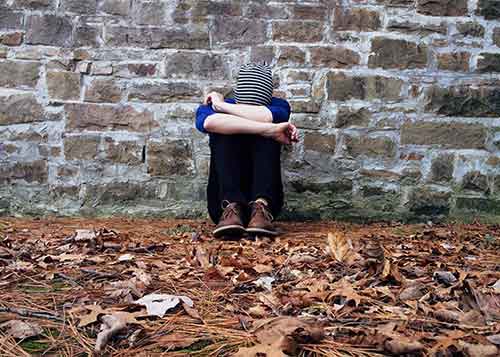
Yesterday, Prime Minister Jacinda Ardern announced, as she had indicated she would during the 2017 election campaign, a Royal Commission into the abuse of children in state care. This will be headed by former Governor General Sir Anand Satyanand. The previous government refused to set up an inquiry.
Good as this government’s decision is, as its first 100 days draws to a close, I believe it does not go far enough. It misses the opportunity to include, for example, faith-based institutions. There have been strong calls to expand such an inquiry’s terms of reference to include churches, charities, community groups, and sports clubs. My hope is that, as the inquiry gets underway, the terms of reference expand, or that the realisation dawns that a further inquiry is needed. In any case, in this country, the edges between state and faith-based institutions often bleed into each other. Will state-funded but faith-based integrated schools, for example, come into the compass of this inquiry?
In Australia, a five-year Royal Commission investigating child abuse recently concluded with a damning 17-volume report. It came up with a raft of recommendations. 2,559 allegations have been referred to the police. 230 prosecutions have commenced. Many people told their story for the first time. Estimates are of 60,000 survivors. The vast majority of abuse happened in religious institutions, particularly Roman Catholic ones.
This week, editorials have put their weight behind the call that our government’s proposed abuse inquiry doesn’t go far enough. 7% of Australia’s RC priests allegedly abused children between 1950 and 2010; four Religious Order had allegations of abuse against more than 20% of their members (with the St John of God Brothers at 40.4% of their members). The history, culture, and dynamics in New Zealand may be different to Australia, but we cannot be clear how this impacts without an expanded inquiry. We know that in this country, the St John of God Brothers were involved in abuse of the most vulnerable. And three of these four orders (with abuse alegations at more than 20% of their members) had a strong presence with young people in institutions in this country.
Another article this week details the change in approach by the St John of God Brothers in relation to the 121 sex abuse allegations in their Marylands School here: ‘Critics said the order “pulled up the draw bridge” after Brother Peter Burke, who was a flagbearer for the settlements, stepped down in 2007 and later died in 2010.’
I support the calls for an expanded abuse inquiry. People who are pressing that faith-based institutions not be missed from an inquiry include Bill Kilgallon, the director of the Catholic Church’s National Office for Professional Standards, which investigates claims of abuse.
*****
The RC Church has begun to react more appropriately. When the sex abuse began to become public, the shock appeared to be around how this affected the souls of the perpetrators. Thankfully, there has been a shift to acknowledging the immense destructiveness in the lives of the victims.
*****
I want to reflect on a couple of the recommendations of the Australian Royal Commission.
Compulsory Celibacy
The first is the call to end compulsory Roman Catholic priestly celibacy.
Roman Catholic priestly celibacy is not as fixed as many think. There are Eastern Rite priests in full communion with Pope Francis, but they follow the Eastern Christian practice – priests can be married or not. There are other Roman Catholic priests who might have been clergy from a different Christian denomination – and they are now RC priests and married. Priesthood and celibacy can be separated.
Also for some, there needs to be clarification around celibacy: monks, brothers, nuns, sisters – these join a Religious Order, and celibacy is integral to that very definition. You cannot remove, for example, celibacy from being a nun. Nuns, by definition, take vows of shared communal ownership, not being married, and obeying a superior. In the Australian conclusions, the highest proportions of offending was not amongst those who are required to be celibate (diocesan priests – 7%, which of course is terrible) but amongst those in Religious Orders (St John of God Brothers – over 40% of them have had allegations of abuse against them). Members of such orders, of course, were moved between Australia and New Zealand – a further reason to investigate in NZ in the manner followed in Australia.
My point is that – yes, I am in favour of unlinking priesthood from celibacy; celibacy continues to be a valuable vocation within the Christian tradition; celibacy (IMO) does not, of itself, lead to the propensity to abuse.
The Secrecy of Confession
A New Zealand Prayer Book He Karakia Mihinare o Aotearoa page 750 expresses well the tradition of the “seal of confession”:
The priest exercises this ministry [of confession] in complete confidentiality. The penitent is therefore able to confess in the assurance that the priest will not refer to the matter again, except at the penitent’s request, and under no circumstances will ever repeat to any other person what has been divulged.
If someone confesses to abuse, the understanding is that if this is done in the context of formal confession (Reconciliation of a Penitent) that information will be held confidential.
I have had an experience where, having confessed, a priest refered back to that later to me – I was quite taken aback (I don’t know how well formed Anglican clergy are now in NZ in this ministry). I also was surprised to see this happen once in the otherwise-amazing 1994 movie Priest (dealing with sexual abuse).
The seal of confession is being called to be removed. I think this needs careful reflection. Currently, RC priests breaking the seal of confession are automatically excommunicated. There are sickening stories of confession being used for grooming and even for sharing amongst a network of abusers – such a malevolent use of confession needs to be explicitly condemned in RC Canon law if it is not already.
But if the state’s requirement of mandatory reporting becomes part of confession, obviously abusers will cease to confess – the last place where they can be dealt with. My advice: if someone confesses to abuse, the officiating priest or bishop withholds absolution and so does not conclude the rite of confession. Since we are still “within” the rite, the person officiating at the confession can continue to refer to the abuse with the abuser. Penitence and seeking amends and amendment of life are integral to confession – the one officiating says, I will not give you absolution until you come with me and we report this to the authorities. Once we have done this, I will absolve you.
If you appreciated this post, consider liking the liturgy facebook page, using the RSS feed, and/or signing up for a not-very-often email, …




I am mostly in agreement Bosco.
I do think that compulsory celibacy increases abuse of children for a number of reasons: a celibate priesthood tends to attract men uninterested in marriage, more of whom will tend to have consequent sexual issues; never having children tends to reinforce immaturity which can surface in attraction to children or young adolescents.
Celibate bishops, never having had their own children, may be more predisposed to protect their priests than protect the children.
There is great wisdom in the Jewish tradition, also listed in the NT requirements for bishops and deacons, of requiring ministers to be mature parents.
There is also the factor of priestly access to children (eg parish schools, children in parishes) being a factor attracting sex abusers.
Many Blessings
Thanks for these important reflections, Chris. Blessings.
But that, IMHO, defeats why many sexual predators confess to a priest to begin with. They want the cheap grace of easy absolution, without the need to mess up their life with being prosecuted and imprisoned.
The issue of Sexual abuse of children is not restricted to Religious institutions as has been demonstrated in the USA, Australia and the UK, Ireland and Europe in recent years.
But an inquiry which excluded Religious Communities is not an Inquiry, fit for purpose. The Monster ICSA inquiry in the UK underway now is specifically aimed at Faith Communities, but will take years to report. In the meantime, many abusers have died or gone missing. The Victims of such abuse are left stranded in these circumstances. Yes their evidence will be taken and heard, but little can be done to bring them closure.
In the UK, the row over the Bishop George Bell saga runs on, with angry exchanges between his supporters and those who have sought to act in the interests of honesty and transparency. Those involved are now elderly and it is unlikely that any sort of resolution will be found, particularly as new evidence (whatever that means) has just come to light and the CofE is being very tight lipped about it as a new inquiry has been launched. This will run on and on, with whatever outcome, will not satisfy either side of the debate.
In all of this, the alleged Victims are used as political footballs, with no thought to the care or welfare. People say hurtful things, without any thought of the ongoing suffering of those involved.
I don’t have any answers, but can state that my own experience as a child in the care of the RC Church, that abuse did happen, but mainly physical abuse in terms of Corporal punishment (by Nuns and Brothers) and other acts to cruel to describe here. One Num involved went to prison in the 1990’s when complaints were investigated and were proven. But it wasn’t only Nuns – those Lay Carers (mainly female) were also responsible for some physical and mental abuse.
Would I give evidence, No, because I have got past that period of my life, and have no wish to relive it in public. But the Anglican Church that I now belong too has been a great support to me in dealing with the past, to their credit. Healing and closure is possible, if sought and given in the right way.
Thanks, “UkViewer”. On this site, to help the culture of more light than heat, we do not normally have anonymous or pseudonymous comments. Because of the particular subject, your pseudonymity is an acceptable exception. I am pleased you are finding support. Let us pray for each other. Blessings.